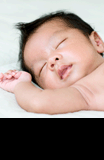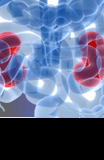Details of specific sample requirements for molecular genetic tests in the context of acquired cancer testing are provided below.
Blood samples - DNA extraction and molecular testing
- EDTA tubes only
- Transport at room temperature (or refrigerated) to arrive within three days of collection
- Volume: Adults > 4 mls; Children > 2 mls; Fetal / Neonates 1 ml
Blood / bone marrow aspirate samples - for RNA extraction / magnetic separation of CD3* / CD34* cells
- EDTA tubes only
- Transport at room temperature (or refrigerated) to arrive within 3 days of collection (send by courier if necessary; delay will lead to loss of RNA within cells)
- Volume: 8ml-20ml
cDNA samples
- Transport at room temperature (or refrigerated)
- Volume: > 30 ul - contact us for more information
- Further information: overnight courier transport is preferable for MRD analysis
Bone marrow aspirate - DNA extraction and molecular testing
- EDTA tubes only
- Transport at room temperature (or refrigerated) to arrive within 3 days of collection
Fixed tissues for extraction (including MSI)
- Samples with > 30 percent neoplastic nuclei across the cut surface: ~50 µm FFPE tissue provided as scrolled sections cut at 6 - 8 µm in an appropriately labelled 1.5 ml microcentrifuge ('Eppendorf') tube
- Samples with < 30 percent neoplastic nuclei across the cut surface: 10 serial 5 micron sections (or 5 if marked tumour area >2 cm2 or up to 15 for very small samples) mounted on microscope slides. Multiple sections can be placed on a single slide. Microtome blade and water-bath should be cleaned thoroughly before cutting sections to avoid cross-contamination and false positive results
- Please also include an H&E stained section from the same block with the tumour boundary marked: percentage of neoplastic content in the marked area should be > 30 percent
- Cytological material should be processed as FFPE tissue and sections provided as above, or the maximum available material (smears, touch preps etc) provided on slides
- *In addition to DNA based testing we are able to arrange M4.2 from a partner laboratory; if this is required please send an additional 5x scrolled sections in an appropriately labelled microcentrifuge ('Eppendorf') tube
- Material can be transported at room temperature
Fixed tissues and tissue slides (FFPE)
- For Cancer Genetics: 10 unstained serial slides with 5 micron (µm) thick sections (or 5 if marked tumour area >v2cm2 or up to 15 for very small samples) mounted on plain glass slides. Multiple sections can be placed on a single slide
- For Clonality: 5 rolled sections 10 µm thick can be also sent for clonality testing
- Microtome blade and water-bath should be cleaned thoroughly before cutting sections to avoid cross-contamination and false positive results
- Please also include a H&E stained slide from the same block with the tumour boundary marked. Percentage of neoplastic content in the marked area should be > 30 percent
- (Samples from which the tumours content areas is less than < 30 percent may be tested, but the low tumours content will compromise the clinical sensitivity of the assay leading to potential false negative results)
- Slides need to be in a slide box and packaged with sufficient padding
- Alternatively, a single core punch from the FFPE tissue block encompassing the area with the highest density of malignant cells can be sent (along with an estimation of tumour percentage in that region)
- Cytological material should be processed as FFPE tissue and sections provided as above, or the maximum available material (smears, touch preps etc.) provided on slides
- Tubes / slides should be labelled with at least two identifiers, preferably with the case number (cellular pathology reference) and patient surname
Transport at room temperature
- DNA samples
- Transport at room temperature (or refrigerated)
- Volume: required amounts are dependent on the tests requested - as a guide NGS panel analysis needs 150 ng at a concentration no less than 10 ng/ul but less DNA is required for other tests - contact us for more information
- Further information: overnight courier transport is preferable for urgent samples, e.g. for prenatal analysis; please notify the laboratory if DNA has been eluted into EDTA containing solution
Notes
Additional samples types may be accepted for analysis.
For additional sample types please contact us to discuss specific specimen requirements prior to arranging specimen collection.




























































